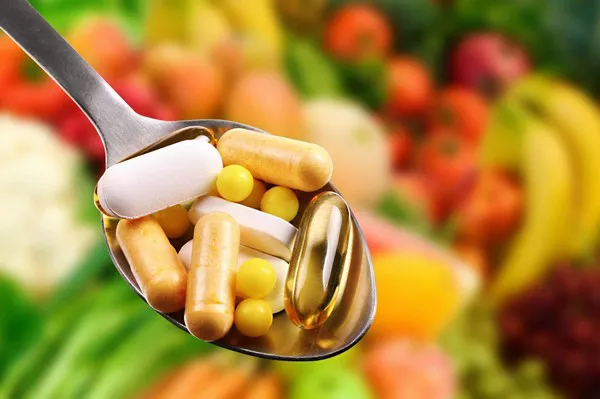Hair fall is a common concern that can be attributed to a variety of factors, including genetics, hormonal imbalances, and inadequate nutrition. While there is no magical solution to completely prevent hair fall, incorporating certain vitamins into your diet can play a significant role in promoting healthy hair growth and minimizing excessive shedding. In this article, we explore the top vitamins that are good for hair fall, highlighting their benefits and sources.
Vitamin A: The Foundation of Healthy Hair
1. Benefits for Hair Health
Vitamin A is a crucial nutrient for maintaining the health of your scalp and hair. It helps in the production of sebum, which is a natural oil that moisturizes the scalp and prevents dryness. A well-moisturized scalp is essential for healthy hair growth and minimizing hair fall.
2. Dietary Sources
Include vitamin A-rich foods in your diet to support your hair health. Carrots, sweet potatoes, spinach, and kale are excellent sources of beta-carotene, which the body converts into vitamin A. Additionally, dairy products, eggs, and liver provide readily available vitamin A.
See Also: Why Do We Need Vitamin A: Things You Need to Know
Vitamin B Complex: Fueling Hair Growth
1. Biotin (Vitamin B7)
Biotin, a member of the B-vitamin family, is often associated with promoting healthy hair, skin, and nails. It helps in the synthesis of keratin, a protein that forms the structure of hair strands. Biotin deficiency can lead to brittle hair and hair fall.
2. B Vitamins (B6, B12, Folate)
Other B-vitamins, such as B6, B12, and folate, contribute to healthy hair growth by supporting the formation of red blood cells, which transport oxygen and nutrients to the hair follicles. A well-nourished scalp with a steady supply of nutrients is essential for reducing hair fall.
3. Dietary Sources
Whole grains, lean meats, poultry, fish, nuts, seeds, and legumes are rich sources of B vitamins. Incorporating a variety of these foods into your diet can help ensure you receive an adequate intake of B-vitamins to support hair health.
See Also: Why Are B Vitamins Called B Vitamins: What You Want to Know
Vitamin C: Strengthening Hair Structure
1. Collagen Production
Vitamin C plays a pivotal role in the production of collagen, a protein that supports the structure of hair, skin, and nails. It also aids in the absorption of iron, which is essential for healthy hair growth and preventing hair loss.
2. Dietary Sources
Citrus fruits (oranges, lemons, grapefruits), strawberries, bell peppers, and broccoli are rich in vitamin C. Including these fruits and vegetables in your diet can provide the vitamin C needed for strong and resilient hair.
See Also: 9 Important Roles of Vitamin C
Vitamin D: Hair Growth and Renewal
1. Role in Hair Follicle Cycling
Vitamin D is essential for the growth and renewal of hair follicles. It helps regulate hair follicle cycling and may have a role in preventing hair loss associated with disrupted growth cycles.
2. Dietary Sources
While the primary source of vitamin D is sunlight, dietary sources include fatty fish (salmon, mackerel), fortified dairy products, and egg yolks. Ensuring you have sufficient vitamin D intake can contribute to healthy hair follicle activity.
See Also: Why Vitamin D Matters: Things You Need to Know
Vitamin E: Antioxidant Protection
1. Antioxidant Properties
Vitamin E is a powerful antioxidant that helps protect hair follicles from oxidative stress. It promotes a healthy scalp environment, which is crucial for hair growth and minimizing hair fall.
2. Dietary Sources
Include sources of vitamin E, such as nuts (almonds, sunflower seeds), seeds, spinach, and avocados, in your diet. These foods provide the necessary vitamin E to support hair health.
See Also: Why Vitamin E Matters: 5 Health Benefits
Conclusion
In conclusion, nourishing your hair from within with the right vitamins can make a significant difference in minimizing hair fall and promoting healthy hair growth. Vitamins A, B complex, C, D, and E play unique roles in supporting different aspects of hair health, from scalp moisture and structure to growth and protection against oxidative stress. While these vitamins are essential, it’s important to remember that a balanced diet, proper hydration, and overall healthy lifestyle habits also contribute to maintaining vibrant and resilient hair. If you are concerned about hair fall or any hair-related issues, consulting with a healthcare professional or dermatologist can provide personalized guidance and recommendations for a comprehensive approach to hair care and maintenance. By incorporating these hair-friendly vitamins into your diet and adopting a holistic approach to hair health, you can take proactive steps toward nurturing luscious locks and maintaining a vibrant appearance.


